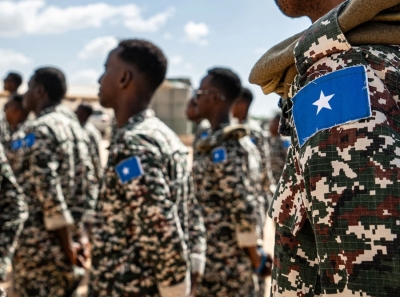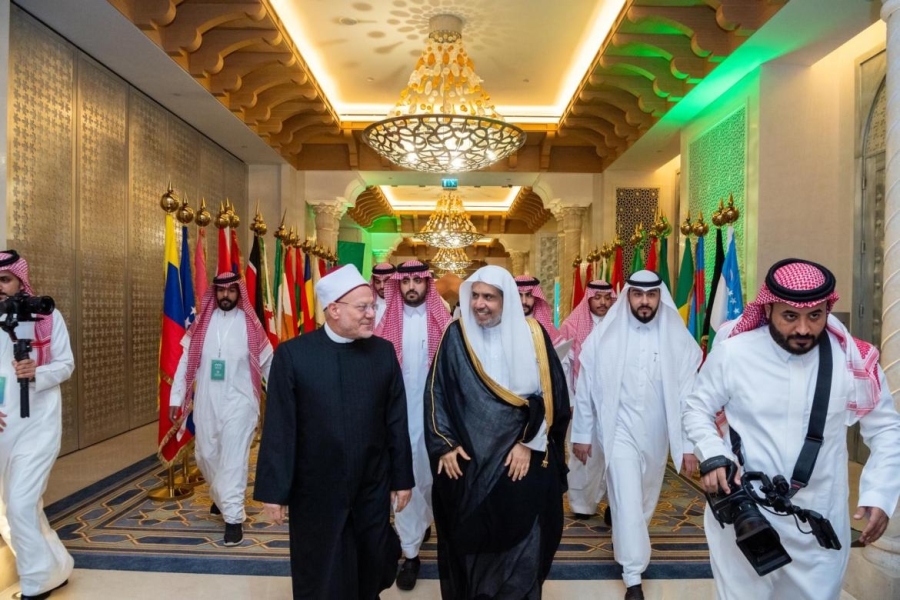In a world often fractured along sectarian lines, the recent Global Conference for Building Bridges between Islamic Schools of Thought and Sects, convened in Makkah, Saudi Arabia, stands out as a beacon of hope for Europe’s diverse Muslim communities.
Under the auspices of the Muslim World League and guided by the leadership of Sheikh Dr. Mohammed bin Abdulkarim Al-Issa, this historic gathering sought to address the age-old divides that have hampered unity within the Muslim world.
For Europe’s Muslims, who find themselves navigating complex sociopolitical landscapes, the outcomes of this summit hold profound implications. In a continent marked by diversity, where Muslims from various backgrounds coexist, the need for a unified vision of Islam is more pressing than ever.
Navigating Diversity: Europe’s Muslim Mosaic
Europe’s Muslim population is as varied as the continent itself, with individuals from different sects, cultures, and traditions calling it home.
From the bustling cities of Western Europe to the rural villages of the Balkans, Muslims in Europe embody a rich tapestry of beliefs and practices. However, this diversity has also been a source of tension, with sectarian divisions occasionally flaring up and threatening to undermine communal harmony.
The ‘Charter of Cooperation and Brotherhood’, born out of the Makkah summit, offers a roadmap for navigating this complexity.
By emphasizing shared values and principles over sectarian differences, the charter provides a framework for fostering unity and understanding within Europe’s Muslim communities.
A Call to Action: Turning Vision into Reality
The success of the Makkah summit will ultimately be measured by its impact on the ground. From community dialogues to educational initiatives, the summit’s participants must now translate its lofty ideals into concrete actions. By promoting dialogue and cooperation across sectarian lines, they can help build a more cohesive and inclusive Muslim community in Europe.
Yet, the road ahead is not without its challenges. Overcoming deep-seated divisions and fostering trust between communities will require sustained effort and commitment. It will also necessitate confronting external forces that seek to exploit these divisions for their own gain, whether through political manipulation or ideological extremism.
A New Narrative for Europe’s Muslims
In the wake of the Makkah summit, Europe’s Muslims find themselves at a pivotal moment. They have the opportunity to redefine their place in society and shape the narrative of Islam in the West. By embracing the vision of unity and cooperation championed by the summit, they can demonstrate that diversity is not a weakness but a strength, and that unity is not just an ideal but a tangible reality.
The Makkah summit represents more than just a gathering of scholars and leaders; it is a catalyst for change, a catalyst that has the potential to transform lives and communities.
As Europe’s Muslims move forward, they must seize this opportunity to build a future where diversity is celebrated, and unity is cherished—a future where the ideals of the Makkah summit are not just aspirations but lived realities.
In conclusion, the implications of the Makkah summit for Europe’s Muslims are vast and far-reaching. As they embark on the journey towards unity, they must remain vigilant, aware of the challenges that lie ahead, but also hopeful, knowing that the vision of a united ummah is within reach.
________________________________________________________________________________________________________

Follow EU Today on social media:
Twitter: @EU_today
@EU_sports
Facebook: https://www.facebook.com/EUtoday.net/
https://www.facebook.com/groups/968799359934046
YouTube: https://www.youtube.com/@eutoday1049












